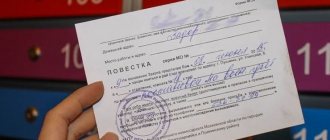The Criminal Code of the Russian Federation interprets the concept of “smuggling” as the transportation of goods and valuables across state borders in violation of the rules provided for by law.
In accordance with the ruling of the Supreme Court of the Russian Federation, contraband can be any movable items, most often among which are money, manuscripts, objects of art, drugs, psychotropic drugs. Article 189 of the Criminal Code of the Russian Federation provides that raw materials, materials, various equipment, scientific and technical data, services and work for foreign companies can also be illegally exported. In this case, only movable property is considered contraband.
Smuggling is a criminal offense. Responsibility for it may be borne by a sane person over 16 years of age who committed a criminal act with direct intent. Most often, this crime is committed for the purpose of obtaining selfish gain.
What is the penalty for buying poached fish or caviar?
In accordance with the Criminal Code of the Russian Federation, illegal extraction, maintenance, as well as acquisition, storage and sale of the above aquatic biological resources are criminal offenses. According to Part 1 of Article 258.1 of the Criminal Code of the Russian Federation, the acquisition of especially valuable aquatic biological resources, their parts and derivatives (derivatives, which include caviar) is punishable:
— compulsory work for up to 480 hours;
- or correctional labor for up to 2 years;
- or forced labor for a period of up to 4 years with or without a fine in the amount of up to 1,000,000 rubles or in the amount of wages or other income of the convicted person for a period of up to 2 years and with or without restriction of freedom for a period of up to 1 year;
- or imprisonment for a term of up to 4 years with a fine in the amount of up to 1,000,000 rubles or in the amount of wages or other income of the convicted person for a period of up to 2 years or without it and with or without restriction of freedom for a term of up to 1 year.
The acquisition of valuable aquatic biological resources belonging to species listed in the Red Book of the Russian Federation or protected by international treaties of the Russian Federation, their parts and derivatives using the media or on the Internet is punishable:
- forced labor for a period of up to 5 years with a fine in the amount of 500,000 to 1,500,000 rubles or in the amount of wages or other income of the convicted person for a period of 1 to 3 years or without it and with restriction of freedom for a term of up to 2 years or without one;
- or imprisonment for a term of up to 5 years with a fine in the amount of 500,000 to 1,500,000 rubles or in the amount of wages or other income of the convicted person for a period of 1 to 3 years or without it and with restriction of freedom for a term of up to 2 years or without it.
It is important to take into account that criminal liability for committing a crime under Article 258.1 of the Criminal Code of the Russian Federation occurs regardless of the quantity of illegally obtained, sold, purchased or stored products. Even buying a single fish from poachers can result in serious punishment.
What are the fines for violating fishing rules in 2021? More details
Liability due to ignorance
According to Agranovsky, it is possible to fall under criminal liability due to ignorance - we are talking about illegal acquisition.
“If you come somewhere where sturgeon live, for example in Astrakhan, and you are offered to buy red caviar from your hands, then you will easily fall under this article. If you come to Yuzhno-Sakhalinsk and are offered to try sea cucumbers out of season, that too. They are even rarer than black caviar,” the specialist said.
You cannot purchase such things by hand at all - only through special licensed stores. <…> It may be more expensive, but it’s legal
Dmitry Agranovskylawyer.
In case of doubt, Agranovsky advised to look at the documents for the products, pay attention to the price of the same caviar, and ask about the experience of local residents.
“If the buyer did not have any reason to believe that the store sells caviar illegally - there are receipts and so on - he may well be able to prove that there was no crime in the actions. If you buy secondhand or in dubious conditions - under the counter or without receipts - then anyone can realize that they are buying illegally,” the lawyer explained.
He recalled that “special conditions apply” for black caviar. A person may act in good faith, but then find himself embroiled in litigation. Responsibility threatens specifically for the illegal purchase of products.
“If [buyers] make mistakes in good faith, […] they may become victims of fraud. Illegal trade, selling under the guise of legal, in my opinion, constitutes fraud on the part of the seller. It’s like selling a stolen car with broken license plates,” Agranovsky expressed his point of view.
Which fish are considered valuable aquatic biological resources?
The list of especially valuable wild animals and aquatic biological resources belonging to species listed in the Red Book of the Russian Federation and (or) protected by international treaties of the Russian Federation was approved by Decree of the Government of the Russian Federation dated October 31, 2013 No. 978.
The following fish species are considered particularly valuable aquatic biological resources:
- Amur sturgeon (acipenser schrenckii);
- Atlantic sturgeon (acipenser sturio);
- beluga (huso huso);
- kaluga (huso dauricus);
- Persian sturgeon (acipenser persicus);
- Russian sturgeon (acipenser gueldenstaedtii);
- Sakhalin sturgeon (acipenser medirostris);
- Sakhalin taimen (parahucho perryi);
- stellate sturgeon (acipenser stellatus);
- Siberian sturgeon (acipenser baerii);
- thorn (acipenser nudiventris).
Article on the topic
Poisoning or poachers? In Volgograd, 40 dead catfish were found on the shore
Commentary to Art. 226.1 of the Criminal Code of the Russian Federation
1. Issues arising in judicial practice in cases of smuggling are explained in the Post. Plenum of the Armed Forces of the Russian Federation dated April 27, 2017 N 12.
2. When considering criminal cases of smuggling, it is necessary to take into account that the legal regulation of customs relations is carried out in accordance with the Constitution and international treaties included in accordance with Part 4 of Art. 15 of the Constitution into its legal system, and the legislation of the Russian Federation on customs affairs.
In particular, these international treaties include the Treaty on the Eurasian Economic Union dated May 29, 2014, which entered into force on January 1, 2015, and other international agreements concluded by the Russian Federation with the member states of the EAEU, other states, international organizations and entities (see. Post of the Plenum of the Armed Forces of the Russian Federation dated May 12, 2016 No. 18).
In accordance with paragraph 1 of Art. 101 of the Treaty on the EAEU, until the entry into force of the EAEU Labor Code, legal force is also retained by the Agreement on the Customs Code of the Customs Union dated November 27, 2009 (TC CU), which has the status of an international treaty concluded by the Russian Federation.
Taking into account the provisions of paragraph 2 of Art. 101 of the Treaty on the EAEU, the terms “customs border of the Customs Union within the EurAsEC” and “State border of the Russian Federation with the member states of the Customs Union within the EurAsEC” used in the commented article should be understood, respectively, as the customs border of the EAEU and the State border of the Russian Federation with the member states of the EAEU .
3. When determining the procedure for moving across the customs border or state border of the items specified in this article, as well as when establishing prohibitions and restrictions associated with such movement, courts should take into account, along with the legislation of the Russian Federation on customs affairs (for example, Federal Law of November 27, 2010 N 311-FZ “On customs regulation in the Russian Federation”) is also the law of the EAEU (legal acts of the EAEU).
In particular, within the framework of the EAEU, the member states have concluded (are in force) agreements relating to the circulation of certain categories of goods (Agreement on uniform principles and rules for the circulation of medicines within the framework of the Eurasian Economic Union of December 23, 2014, Agreement on the procedure for the movement of narcotic drugs, psychotropic substances and their precursors in the customs territory of the Customs Union dated October 24, 2013).
The law of the EAEU includes decisions and orders of the permanent regulatory body of the EAEU - the Eurasian Economic Commission, adopted within the framework of its powers (for example, decision of the Commission Board dated April 21, 2015 N 30 “On non-tariff regulation measures”), which are recognized as acts regulating customs legal relations in the Russian Federation as a member state of the Union, on the basis of Art. Art. 6 and 32 of the Treaty on the EAEU.
4. The subject of the crime is: a) potent, poisonous, poisonous, explosive, radioactive substances; b) radiation sources; c) nuclear materials; d) firearms, their main parts (barrel, bolt, drum, frame, receiver); e) explosive devices; f) ammunition; e) weapons of mass destruction, means of their delivery; g) other weapons; h) other military equipment; i) materials and equipment that can be used in the creation of weapons of mass destruction, their delivery vehicles, other weapons, and other military equipment; j) strategically important goods and resources or cultural assets on a large scale; k) especially valuable wild animals and aquatic biological resources belonging to species listed in the Red Book of the Russian Federation and (or) protected by international treaties of the Russian Federation, their parts (for example, skins, paws, horns, parts of the body) and derivatives (for example, fish caviar, shellfish shells, milk and animal hair).
According to the note. to the commented article a list of strategically important goods and resources, as well as a list of especially valuable wild animals and aquatic biological resources belonging to species listed in the Red Book of the Russian Federation and (or) protected by international treaties of the Russian Federation, approved. Government of the Russian Federation. ——————————— See: Post. Government of the Russian Federation dated September 13, 2012 N 923 “On approval of the list of strategically important goods and resources for the purposes of Article 226.1 of the Criminal Code of the Russian Federation”; dated 10/31/2013 N 978 “On approval of the list of especially valuable wild animals and aquatic biological resources belonging to species listed in the Red Book of the Russian Federation and (or) protected by international treaties of the Russian Federation, for the purposes of Articles 226.1 and 258.1 of the Criminal Code of the Russian Federation” .
If special knowledge is required to decide whether smuggled items are firearms, explosive devices, ammunition, weapons of mass destruction, means of delivery, other weapons, etc., then an examination of the case is necessary.
5. When deciding whether a person’s actions contain signs of a crime under the article under comment, courts must establish that illegally transported goods or other items belong to the contraband items listed in this article.
For these purposes, it is necessary to take into account not only the relevant provisions of the legislation of the Russian Federation, but also the norms of law of the EAEU (formerly EurAsEC).
Constitutional Court of the Russian Federation in Post. dated July 16, 2015 N 22-P recognized the provision of the commented article, establishing criminal liability for smuggling of potent substances, as inconsistent with the Constitution, its art. Art. 19 (part 1), 54 (part 2) and 55 (part 3) to the extent that this provision - in the presence of uncertainty leading to its arbitrary interpretation and application of the legal regulation of the procedure and conditions for the movement of individuals across the State Border The Russian Federation with the member states of the Customs Union within the EurAsEC of potent substances included in medicines and not being narcotic drugs, psychotropic substances, their precursors or analogues does not imply the possibility of taking into account the specifics of their movement carried out by individuals for personal use, and does not allow these persons to realize the socially dangerous and illegal nature of their actions and foresee their criminal legal consequences.
6. In cases where the illegal export from the Russian Federation of materials and equipment, which the perpetrator knows can be used in the creation of weapons and military equipment, was expressed only in their export across the State Border of the Russian Federation by any of the methods provided for in sub-clause. 19 clause 1 art. 4 of the Labor Code of the Customs Union (subclause 25, clause 1, article 2 of the EAEU Labor Code), the act is qualified under the relevant part of Art. 226.1 of the Criminal Code of the Russian Federation.
Export of raw materials, materials, equipment that can be used in the creation of weapons of mass destruction, weapons and military equipment is illegal if it is carried out in violation of the Federal Law of July 18, 1999 N 183-FZ “On Export Control” and regulatory legal acts on issues related to the development and production of military products, as well as licensing of these activities.
7. When considering cases of smuggling of cultural property, it should be taken into account that the temporary export by individuals and legal entities and the export by individuals of cultural property from the Russian Federation to other states that are not member states of the EAEU is carried out on the basis of a conclusion (permit document) drawn up in the form , approved by decision of the Board of the Eurasian Economic Commission dated May 16, 2012 N 45, the export by legal entities and individual entrepreneurs of cultural property - on the basis of a license issued in accordance with the Instructions on the preparation of an application for a license to export and (or) import certain types of goods and on the execution of such licenses, approved by decision of the Board of the Eurasian Economic Commission dated November 6, 2014 N 199.
The list of cultural property for which a permit procedure for export from the customs territory of the EAEU has been established is established by decision of the Board of the Eurasian Economic Commission dated 04/21/2015 N 30 (section 2.20 of Appendix N 2).
The permitting procedure for the movement of cultural property is established only when exporting it from the customs territory of the EAEU.
The movement of goods across the territory of the EAEU in accordance with the Treaty on the EAEU is carried out freely, except for cases provided for by the Treaty. In accordance with paragraph 1 of Art. 29 of the Treaty, EAEU member states have the right to apply restrictions in mutual trade in goods if such restrictions are necessary to protect cultural property. The procedure for the movement or circulation of such goods in the customs territory of the EAEU is determined in accordance with the Treaty on the EAEU and international treaties within the EAEU.
The issue of classifying goods as cultural property must be resolved by the court, taking into account the opinions of experts, as well as specialists.
Cultural property declared for export, temporary export, as well as returned after temporary export, in accordance with the legislation of the Russian Federation on the export and import of cultural property, is subject to examination.
In cases where the export of cultural property was carried out on the basis of a conclusion (permit document) suggesting their return to the Russian Federation within a specified period of time (temporary export), then the failure to return cultural property within a specified period of time constitutes a crime under Art. 190 of the Criminal Code of the Russian Federation.
8. The size of the contraband items listed in the commented article (with the exception of strategically important goods and resources or cultural values) transported across the customs border is not a mandatory feature of this crime.
In cases where it is necessary to determine the value of contraband items illegally transported across the customs border or state border, courts should proceed from state-regulated prices for goods, if any, or from the customs value of goods, and in the absence of specified prices or if it is impossible to determine customs value - from the market value of the relevant goods at the time of the crime. In the absence of information about the price of the goods, its value is determined on the basis of an expert’s opinion.
Taking into account the legal position of the Constitutional Court of the Russian Federation, set out in Post. dated July 13, 2010 N 15-P, the calculation of the value of illegally transported goods for personal use listed in the commented article is made on the basis of the customs value of this product, and not its market value in the territory of the Russian Federation, and does not take into account that part of the cost that by the law of the EAEU and the legislation of the Russian Federation on customs affairs is allowed to be moved without declaration and (or) has been declared.
9. The objective side of the crime is the illegal movement of the specified contraband items across the customs border and (or) state border.
Illegal movement across the customs border of the items mentioned in the article consists of their movement across the customs border outside established places or at unspecified working hours of customs authorities in these places, or with concealment from customs control, or with false declaration or non-declaration of items, or with the use of documents, containing false information about items, and (or) using counterfeit means of identification or those related to other items.
When establishing the fact of illegal movement of goods or other items across the state border, courts must take into account that the legal regulation of the import or export of goods and other items from the territory of one member state of the Union to the territory of another member state of the Union has its own characteristics.
In particular, despite the fact that the Union ensures freedom of movement of goods, services, capital and labor, clause 3 of Art. 29 of the Treaty allows for the possibility of limiting the turnover of certain categories of goods on the grounds specified in clause 1 of this article of the Treaty. In this case, the procedure for the movement or circulation of such goods in the customs territory of the Union is determined in accordance with the Treaty, as well as international treaties within the framework of this Union.
In addition, on the territory of the Russian Federation, based on the provisions of paragraph 2 of Art. 129 of the Civil Code, by law or in the manner prescribed by law, legal regulation measures may be introduced that limit the free circulation of certain substances or items, in particular, those that pose a threat to public safety.
10. In cases where the illegal movement of a contraband item, provided for in the commented article, is carried out not only across the customs border, but also across the state border, the act should be considered as one crime if there is a single intent of the person when committing these actions.
11. For the moment of the end of smuggling, see the commentary to Art. 200.1.
12. If a person, along with the illegal movement across the customs border, across the state border of the items listed in the commented article, commits an intentional unlawful act related to the illegal trafficking of these items, then the act is subject to qualification under a set of crimes: under Art. 226.1 of the Criminal Code and the relevant articles of the Criminal Code of the Russian Federation, providing for liability for the commission of these acts (in particular, under Articles 218, 220, 222, 222.1, 355 of the Criminal Code of the Russian Federation).
13. According to paragraph “b” of part 2 of the commented article, the commission of smuggling is qualified, involving any physical influence (for example, striking, tying) on a person exercising customs or border control, in order to force him not to interfere with the illegal movement of objects across the customs border.
Violence consisting of beatings, committing other violent acts, intentionally causing minor or moderate harm to health, as well as serious harm to health in the absence of the signs provided for in Part 3 or 4 of Art. 111 of the Criminal Code of the Russian Federation, covered by paragraph “b” of Part 2 of Art. 226.1 of the Criminal Code does not require additional qualifications under articles providing for liability against life and health.
If serious harm to health is intentionally caused under the circumstances specified in Part 3 or 4 of Art. 111 of the Criminal Code of the Russian Federation, the act is qualified according to the totality of crimes provided for in paragraph “b” of Part 2 of Art. 226.1 of the Criminal Code and the corresponding part of Art. 111 of the Criminal Code of the Russian Federation.
14. On the concept of an organized group (Part 3 of the article being commented on), see the commentary to Art. 35.
In cases where smuggling is recognized as a committed organized group, under Part 3 of Art. 226 of the Criminal Code qualifies the actions of all members of an organized group, and not just those who directly transported goods or other contraband items across the customs border (for example, the actions of members of an organized group who facilitated the illegal movement of items at a customs control point or falsified documents presented at customs clearance of goods, acted as transport forwarders of smuggled cargo).
15. From the subjective side, the crime in question is characterized by direct intent.
16. The subject of a crime can be either a general subject (a sane individual who has reached the age of 16) or a special one (an official).
An official in paragraph “a” of part 2 of the commented article should be understood as officials of the customs authorities of the Russian Federation (in particular, officials who have the right to be in customs and border control zones and to exercise control over the movement of goods), as well as other persons who, by virtue of their official powers, could facilitate the illegal movement of goods (for example, border control officials of the border authorities of the FSB of Russia).
Smuggling committed by an official using his official position, additional qualifications under Art. Art. 285 or 286 of the Criminal Code does not require.
Actions of organizers, instigators and accomplices of smuggling committed by an official using his official position are qualified under the relevant part of Art. 33 of the Criminal Code and clause “a”, part 2 of Art. 226.1 of the Criminal Code of the Russian Federation.
If, not being a smuggler, an official participates in the commission of smuggling by other persons, his actions (inaction) are subject to qualification under the relevant parts of Art. 33 and art. 226.1 of the Criminal Code (depending on the type of complicity and the presence of qualifying features), as well as under the relevant articles of Ch. 30 of the Criminal Code of the Russian Federation, if the act contains all the elements of any crime provided for in this chapter. At the same time, paragraph “a” of Part 2 of Art. 226.1 of the Criminal Code is not subject to imputation to the specified persons.
What is the penalty for catching and selling crayfish?
Violation of the rules regulating fishing also carries criminal liability. In accordance with Art. 256 of the Criminal Code of the Russian Federation (“Illegal extraction (catch) of aquatic biological resources by means of their mass extermination in a specially protected natural area”) for the illegal extraction of aquatic biological resources on a large scale, a citizen can pay in money: the fine ranges from 300,000 to 500,000 rubles. According to the definition of Article 256 of the Criminal Code of the Russian Federation, damage of more than 100,000 rubles is considered large-scale.
For failure to comply with the rules for catching crayfish, citizens can be fined 2,000-5,000 rubles. These fines are provided for in Article 8.37 of the Code of Administrative Offenses of the Russian Federation.
Prohibitions on catching crayfish are established by the Fishing Rules for each fishing basin. Thus, Moscow and the Moscow region have classified freshwater crayfish as biological resources prohibited for fishing; there is a year-round fishing ban in the region. Catching crayfish is also prohibited in the Republic of Mordovia. In other regions, there are fishing restrictions at certain periods during the year. Thus, in the Oryol, Kaliningrad, Kirov, Vladimir, Smolensk and Bryansk regions, crayfish cannot be caught from October 1 to June 30. In the Volgograd region, the ban on catching crayfish is valid from January 1 to September 14, in the Tsimlyansk Reservoir - from January 1 to September 15. In the Samara region - from January 1 to July 15 and from August 10 to September 10. Catching crayfish for personal purposes is not prohibited, but their production on an industrial scale is prohibited.
From claw to tail. How to properly clean and eat crayfish Read more
Judicial practice: sentences and punishment under Art. 226.1 of the Criminal Code of the Russian Federation
- Decision of the Supreme Court: Determination N 203-APU17-21... THE SUPREME COURT OF THE RUSSIAN FEDERATION Case No. 203-APU17-21 APPEAL DECISION Moscow August 31, 2021 Judicial Collegium for Military Personnel of the Supreme...
- Resolution of the Plenum of the Supreme Court of the Russian Federation dated... PLENARY OF THE SUPREME COURT OF THE RUSSIAN FEDERATION DECISION dated December 27, 2002 N 29 ON JUDICIAL PRACTICE IN CASES OF THEFT,...
- Decision of the Supreme Court: Determination No. 38-АПУ17-2 dated... THE SUPREME COURT OF THE RUSSIAN FEDERATION No. 38-АПУ17-2 APPEAL DECISION Moscow March 1, 2021 Judicial Collegium for Criminal Cases of the Supreme Court...
- Resolution of the Presidium of the Supreme Court of the Russian Federation dated... PRESIDIUM OF THE SUPREME COURT OF THE RUSSIAN FEDERATION DECISION dated December 5, 2018 N 126-P18 ON RESUMING PROCEEDINGS IN THE CASE DUE TO NEW...
- Resolution of the Plenum of the Supreme Court of the Russian Federation dated... PLENARY OF THE SUPREME COURT OF THE RUSSIAN FEDERATION DECISION of November 15, 2021 N 48 ON THE PRACTICE OF APPLICATION BY COURTS OF LEGISLATION GOVERNING FEATURES...
- Decision of the Supreme Court: Determination No. 72-АПУ17-1 dated... THE SUPREME COURT OF THE RUSSIAN FEDERATION Case No. 72-АПУ17-1 APPEAL DECISION Moscow February 2, 2021 Judicial Collegium for Criminal Cases...
- Ruling of the ECtHR dated 02/14/2017 EUROPEAN COURT OF HUMAN RIGHTS THIRD SECTION CASE “MASLOVA VS. RUSSIAN FEDERATION” (Complaint No. 15980/12) JUDGMENT…
- Ruling of the Constitutional Court of the Russian Federation dated March 13, 2018 N 578-O THE CONSTITUTIONAL COURT OF THE RUSSIAN FEDERATION RULING dated March 13, 2018 N 578-O ON THE REFUSAL TO ACCEPT A CITIZEN’S COMPLAINT FOR CONSIDERATION...
- Decision of the Supreme Court: Determination No. 66-АПУ17-6 from... THE SUPREME COURT OF THE RUSSIAN FEDERATION Case No. 66-АПУ17-б APPEAL DECISION Moscow City June 14, 2021 Judicial Collegium for Criminal Cases of the Supreme...
- Judicial Collegium for Criminal Cases, appeal:... THE SUPREME COURT OF THE RUSSIAN FEDERATION Case No. 72-APU 17-21 APPEAL DECISION Moscow October 04, 2021 Judicial Collegium for Criminal Cases...









